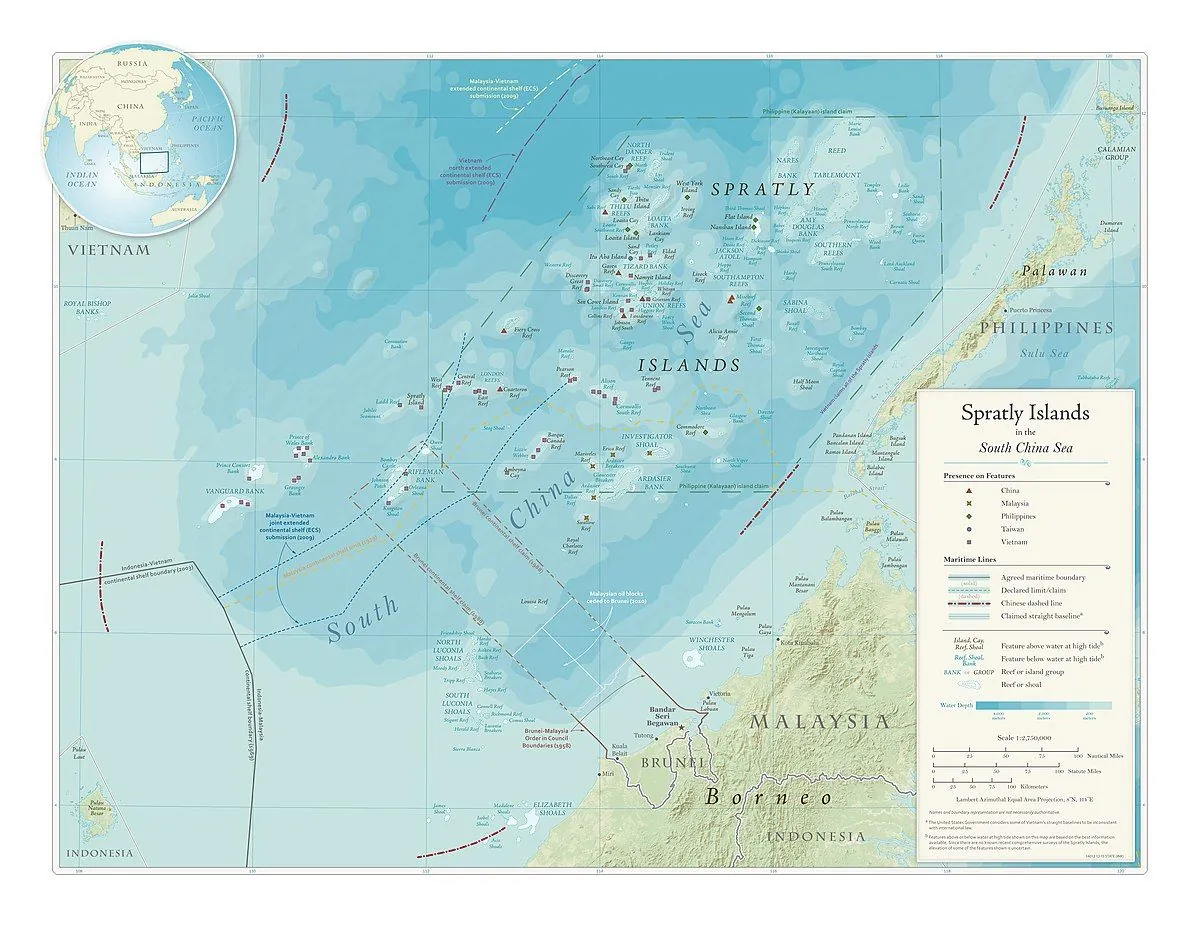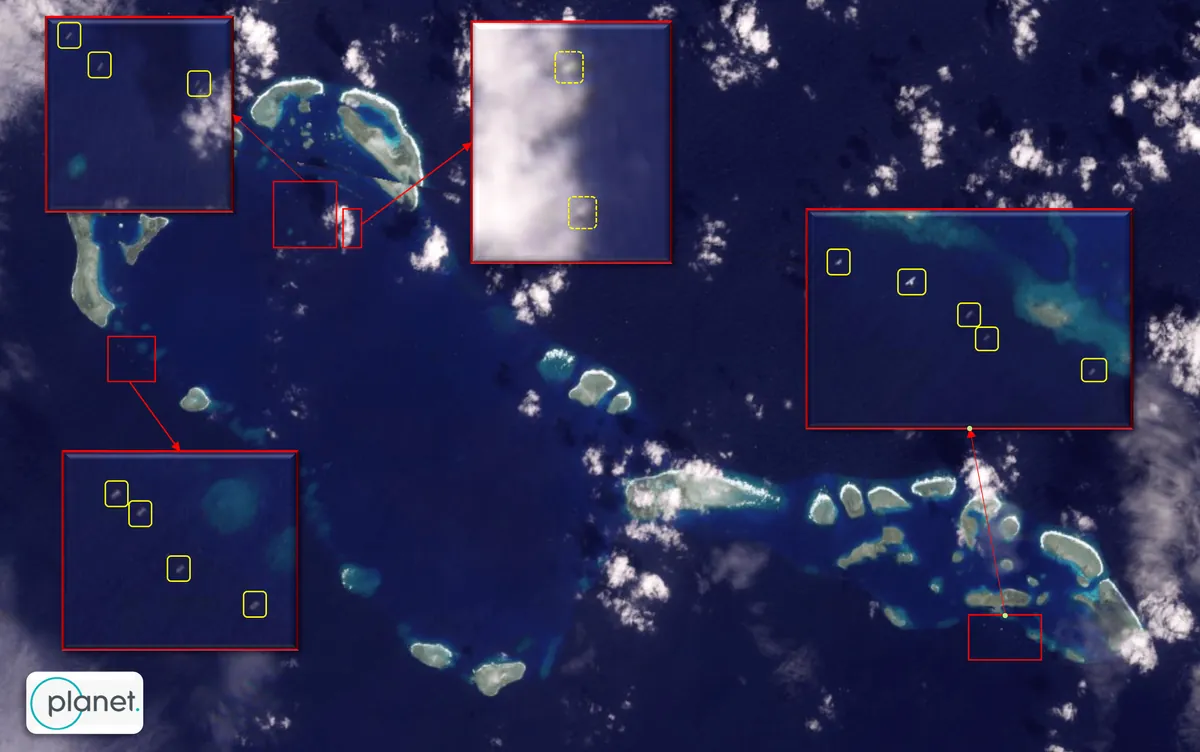China Warns of 'Limited Patience' in South China Sea Dispute with Philippines
China expresses commitment to managing South China Sea differences with the Philippines, but warns of "limited patience". Recent clashes and U.S. support for the Philippines heighten tensions in the region.

In a recent statement, a Chinese defense ministry spokesperson addressed the ongoing tensions with the Philippines in the South China Sea. The official emphasized China's commitment to managing differences but cautioned that their patience has limits.
The South China Sea, covering approximately 3.5 million square kilometers, has been a source of contention between China and several Southeast Asian nations. China's "nine-dash line" claim encompasses about 90% of this strategic waterway, which is rich in natural resources and biodiversity.
Recent weeks have seen a series of confrontations between Chinese and Philippine vessels near Sabina Shoal, one of the disputed areas in the region. These incidents have escalated tensions between the two countries, highlighting the complex nature of territorial claims in the area.

The Chinese spokesperson expressed concern over what they perceive as "reckless provocations" by the Philippines, attributing this behavior to increased support from the United States. It's worth noting that the U.S.-Philippines Mutual Defense Treaty, signed in 1951, has been a cornerstone of their alliance.
The South China Sea dispute involves multiple stakeholders, including Vietnam, Malaysia, and Brunei. In 2013, the Philippines filed a case against China at the Permanent Court of Arbitration, resulting in a 2016 ruling that favored the Philippines and rejected China's expansive claims. However, China has not recognized this decision.
The region's significance extends beyond territorial claims. It is a vital shipping route, with an estimated $3.37 trillion of global trade passing through annually. Moreover, the South China Sea is believed to contain substantial untapped resources, including approximately 11 billion barrels of oil and 190 trillion cubic feet of natural gas.
Environmental concerns also play a crucial role in the dispute. The South China Sea is home to over 3,000 species of fish and hosts 76% of the world's coral species, making it a hotspot for marine biodiversity.
As tensions persist, the international community watches closely. The United Nations Convention on the Law of the Sea (UNCLOS) provides a framework for resolving maritime disputes, but its effectiveness in this complex geopolitical situation remains challenged.
"U.S. support has emboldened the Philippines in making reckless provocations."
While China maintains its commitment to diplomatic resolutions, the warning of "limited patience" suggests a potential for further escalation if the situation remains unresolved. As both nations navigate these turbulent waters, the need for peaceful dialogue and adherence to international law becomes increasingly apparent.


































